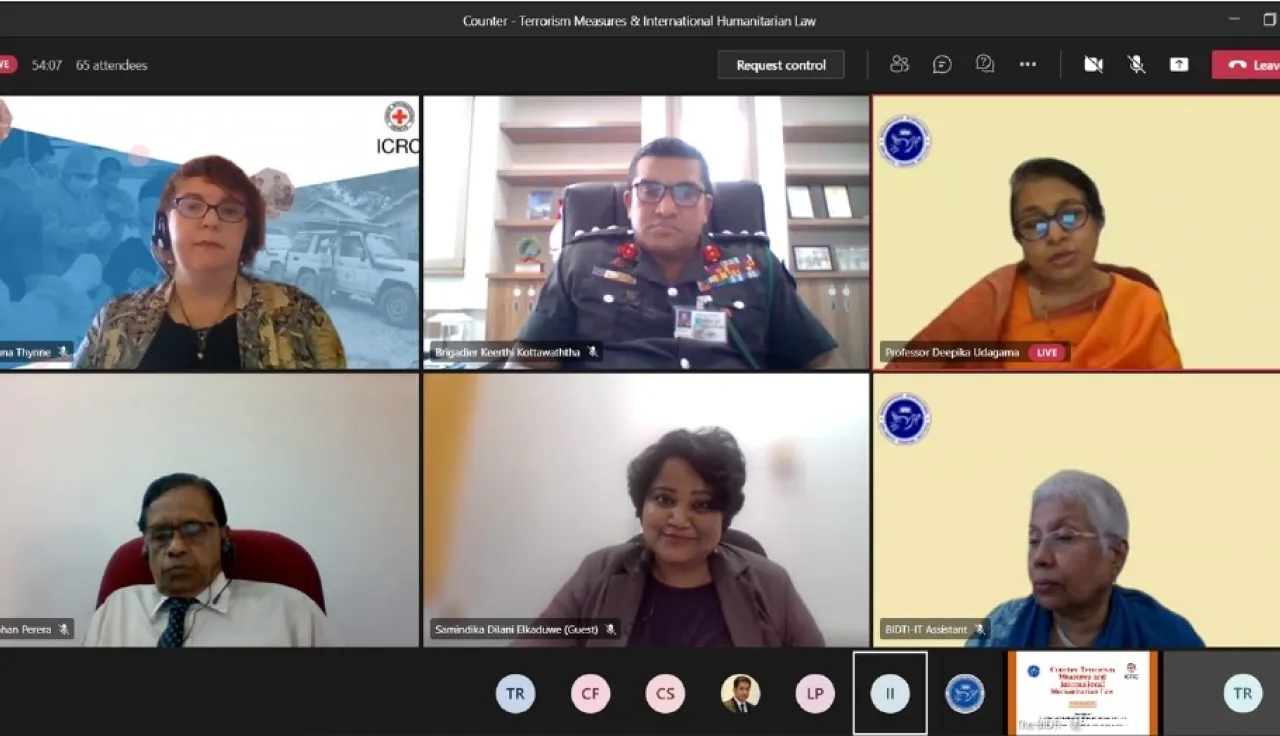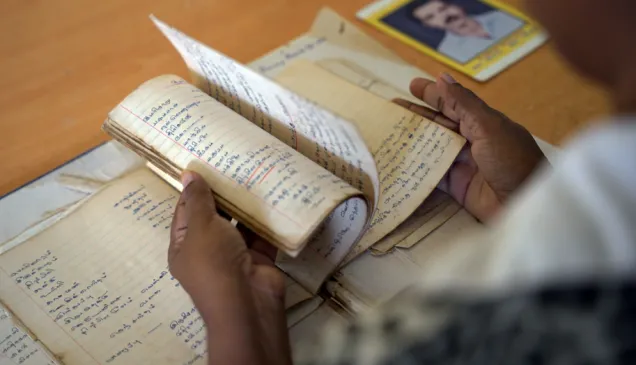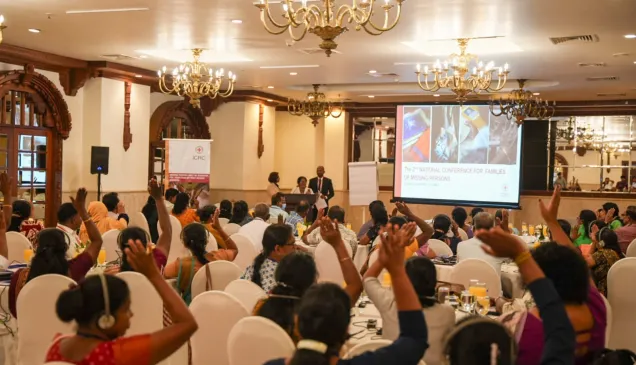Sri Lanka: Exploring contemporary challenges to international humanitarian law

The Geneva Conventions enjoy universal acceptance, even seven decades after their adoption. Their integration into domestic law and military doctrine continues to prevent and minimize the human cost of armed conflict, while preserving a minimum of human dignity in times of armed conflict.
However, as methods, means and geography of warfare are transformed, the implementation of international humanitarian law (IHL) faces new challenges. The International Committee of the Red Cross (ICRC), in collaboration with the Bandaranaike International Diplomatic Training Institute (BIDTI), organized a series of webinars to raise awareness and promote discussion on selected contemporary challenges to IHL, based on the fifth Challenges Report published by the ICRC.
The webinar series benefited from the knowledge and experience of prominent diplomats, representatives from the military, academics and IHL experts.
The first webinar (17 December 2020) focused on "Contemporary challenges to IHL and the role of the diplomat", examining the important role played by states in domestic and multilateral settings. Dr Rohan Perera, former permanent representative of Sri Lanka to the United Nations in New York and former legal advisor to Sri Lanka's foreign ministry, explored the role of the diplomat in bringing up such challenges for discussion and seeking solutions.
His remarks were complemented by Ambassador A.M.J. Sadiq, current chairman of the National IHL Committee of Sri Lanka, who highlighted the challenging yet essential interventions that diplomats can make to bridge discussions at the multilateral level with those at the domestic level.
The second webinar on "New technologies of warfare and challenges to IHL" (2 February 2021) looked at the opportunities and threats posed to the implementation of IHL by technological advances in warfare, including autonomous weapon systems and cyber warfare.
Ambassador A.L.A. Azeez, Additional Secretary (East), Ministry of Foreign Affairs, shared useful insights from the deliberations of the Group of Governmental Experts on Lethal Autonomous Weapons Systems (LAWS), laying emphasis on human control.
Wing Commander A.P.I. Sampath Kumara and Squadron Leader L.N. Randeni from the Sri Lanka Air Force (SLAF) added their operational perspective on functions of the newly established cyber operations centre of the SLAF and how IHL principles can be integrated into cyber warfare.
The final webinar in this series, "Counterterrorism measures and international humanitarian law", (8 April 2021) focused on humanitarian and legal concerns stemming from counter-terrorism operations in the context of armed conflict.
Professor Deepika Udagama, Chair Professor of Law, University of Peradeniya, and former chairman of the Human Rights Commission of Sri Lanka, examined the concurrent application of IHL and international human rights law in counterterrorism operations in armed conflict, and the importance of respecting both legal frameworks.
Brigadier Keerthi Kottawaththa RWP RSP USP, director of the Directorate of Human Rights and International Humanitarian Law, Sri Lanka Army, shared the operational perspective on the application of IHL to domestic counterterrorism operations.
Director General of BIDTI, (Amb.) Pamela J Deen, commenting on the outcome of the collaboration stated: 'BIDTI was pleased to be a partner in this exercise which is a continuation of its long-standing relationship with the ICRC. BIDTI encourages the ICRC to continue its dissemination efforts, enabling all relevant parties to deliberate on issues relating to application of IHL.'
The webinar series was well attended by a wide range of participants from around the world, who interacted actively with the panellists and contributed to a vibrant discourse.



